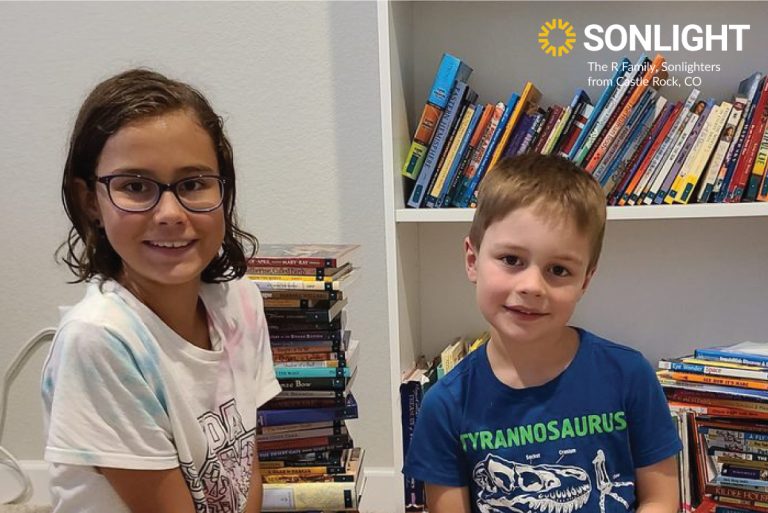
So much learning in homeschooling is organic.
- Children learn about money as they shop with you.
- They learn about fractions as they cook with you.
- They learn about water displacement as they help you wash the dishes.
Everything is an opportunity to learn and grow. Including your mistakes.
Let’s say that your kids ask you a math question and you give them the wrong answer. You got mixed up and told them the wrong way to do something. They will soon get frustrated when what you told them isn’t working.
Then you realize your mistake. What do you do?
- You could blame it on the math program you’re using and say it is a stupid program that never explains things clearly.
- You could belittle yourself and say you were never good at math anyway.
- You could be embarrassed and just let them figure it out on their own.
- Or you could say something like, “Wow, I messed that up. I’m sorry, honey. I bet that was frustrating to try to work with the wrong information. Now let’s work together to see where I got it wrong. We’ll figure this out!”
Which approach do you think would help your kids learn from the experience? Which will help them deal with their own mistakes in a productive way?
Making Mistakes with Wrong Responses
Of course we want to choose the mature response. But one area where that can be particularly humbling is when we make relational mistakes with our children. When we lose our patience, speak harsh words, stomp away in anger, or otherwise fail to act like a loving, wise adult, it can be hard to admit our failings.
How do you handle making mistakes as a homeschool parent?
Model How to Apologize
For one, remember that most homeschool moms get angry sometimes.
Next remember that your children learn about apologies, forgiveness, and reconciliation as they watch you.
They don’t need you to pretend that nothing happened. They need to see that parents can be imperfect, admit wrong-doing, and move forward in relationship. So the next time you need to make things right with your kids, try something like this:
1. Acknowledge Your Wrong
Say, “I’m sorry that I did that. It was wrong when I lost my temper and raised my voice at you.”
2. Ask for Forgiveness
Ask specifically, “Will you forgive me?” This request opens meaningful conversation and helps reconcile the relationship. It also helps your children feel free to take responsibility for their own part in the conflict, if some of it was their fault, too.
3. Think Ahead to Next Time
Process with them what you can do to make a better decision in the future. Say something like, “I want to handle my frustration more appropriately next time. I will try to take a deep breath and count to ten if I feel myself getting frustrated about math.”
You can include them in this process too, asking if they have any ideas of how the two of you can handle the situation better next time. Some of their ideas may not be acceptable, but it’s okay for them to offer them in a brainstorming session. Together you can agree on wise things to try.
As the parent in the situation, you are the captain of the ship–the one responsible for directing how things go. If your children need correction, then correct. If they need you to enforce boundaries, then enforce them. But don’t be afraid to admit your own error in the situation.
Making Mistakes Proves Our Imperfection
And please, mom, don’t be afraid to admit your imperfection in general. This, too, is a gift to your children.
I know a mom who tells of a turning point in her own parenting journey. She hit a point when she was faced with a daily reality harder than anything she had expected, and she realized she couldn’t do it all. She couldn’t be up with her young baby all night every night, and keep the toddler happy and out of trouble, and have a lovely dinner on the table when her husband came home, and keep the house clean, and keep a smile on her face the whole time. It was too much! She told me she had the shocking realization one night that she was not a perfect mom and that she could not be a perfect mom.
And then she laughed. Because, of course, her family and God had known this “shocking” news for a long time. They knew she wasn’t perfect, yet they loved her still. She says it was a huge relief to just stand before God as she was and receive that love. She couldn’t pretend she had it all together anymore, so she stopped trying to pretend. What a relief. What freedom!
Kids don’t need a perfect mother. And they certainly don’t need someone who pretends to be a perfect mother. What they do need is a real mother. A mother who loves them, grows with them, and uses her adult perspective and skills to help them grow, too. You can do that, mom. You can do that!
I will continue to pray that God blesses you on that journey of making mistakes and learning through them.








Thanks so much, Sarita! I so appreciate your encouragement and kind words
Thank you! I feel loved by you and Amy